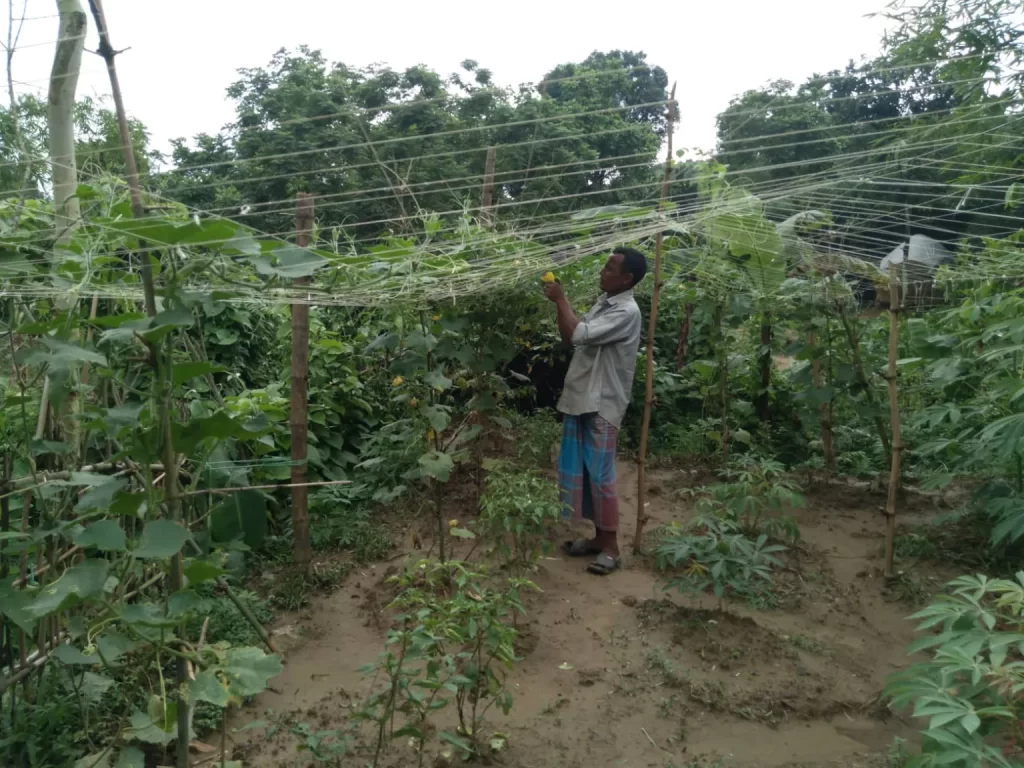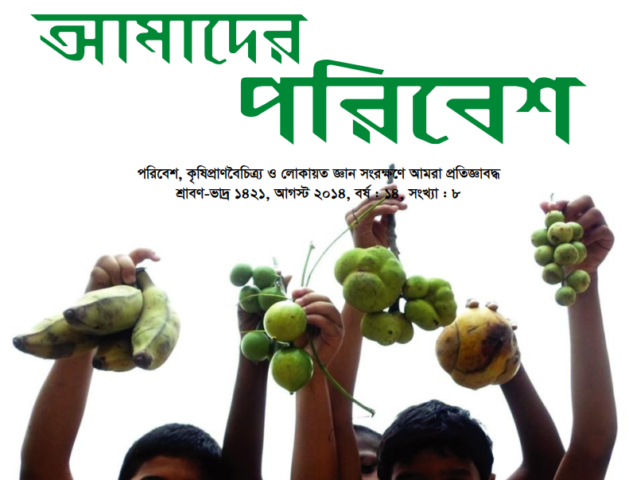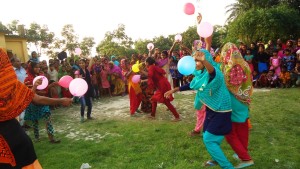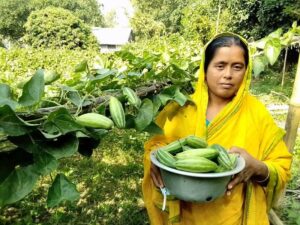Alpana Nafak from Kalmakanda Netrokona
Banbera is a border belt village in Kharnai union of Kalmakanda upazila. Mostly indigenous people live in this village. There are 17 families in the village. Of these, 2 families belong to Garo ethnic group and the remaining 15 families belong to Hajong ethnic group. Nahajan Hajong (45) is a resident of this village. He is generally a sharecropper and day laborer. The amount of his land including homestead is 64 decimals.
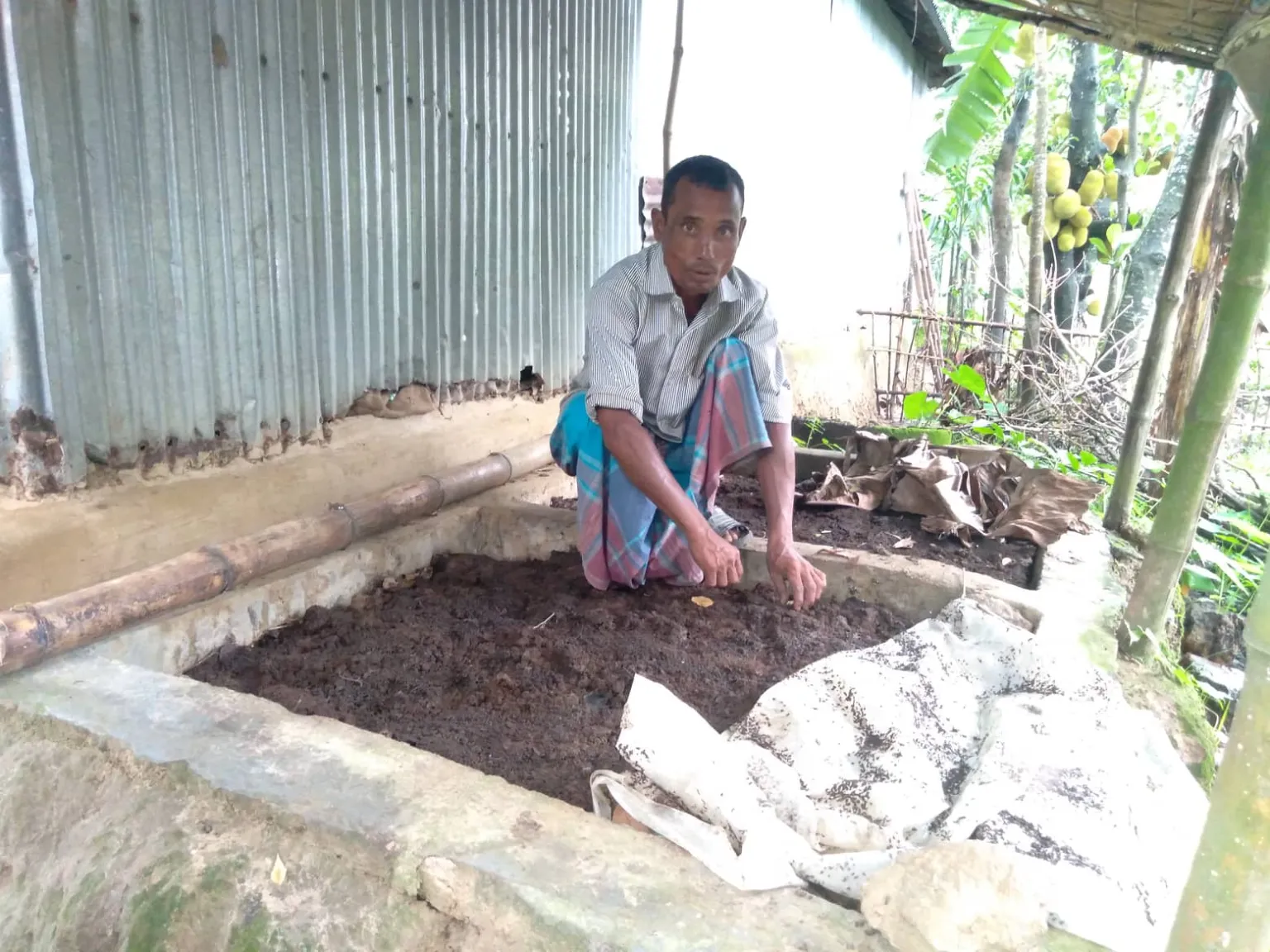
Nahajan has been involved in BARCIK’s activities since 2012. He has participated in various awareness programs of the organization that leads him to become an aware persons about his rights and other related issues. Being aware about the negative impact of dowry, Nahajan Hajong get his eldest daughter’s marriage without dowry. He said, ‘I have learned from participating in various programs arranged by BARCIK that giving and receiving dowry is both a crime. So, I decided that I will not set the marriage of kids with dowry. I really need to do the right thing.’ He went on saying ‘Dowry-free marriages are taking place in our village now. For the first time in this village, I was able to set my daughter’s marriage without dowry.’
Nahajan Hajong practices sustainable agriculture which leads him to prepare vermin compost and apply on his rice lands and vegetable garden. According to him compost makes the health of soil healthy. He is making earthworm compost in a house. From there he used it in paddy fields and vegetable gardens. Nahajan Hajong said, ‘I have benefited a lot from making this compost. Because before that I used to use chemical fertilizers which does not only destroy my land but also increases my production cost. Sometimes I could not afford to buy the chemical fertilizers. Now I don’t have to spend money for fertilizer. As a result, my production cost has reduced. I put those compost in sacks to apply on my lands during Aman and Boro season. The use of this fertilizer increases the fertility of the soil. For this, I also encourage other farmers to produce and use this fertilizer.’
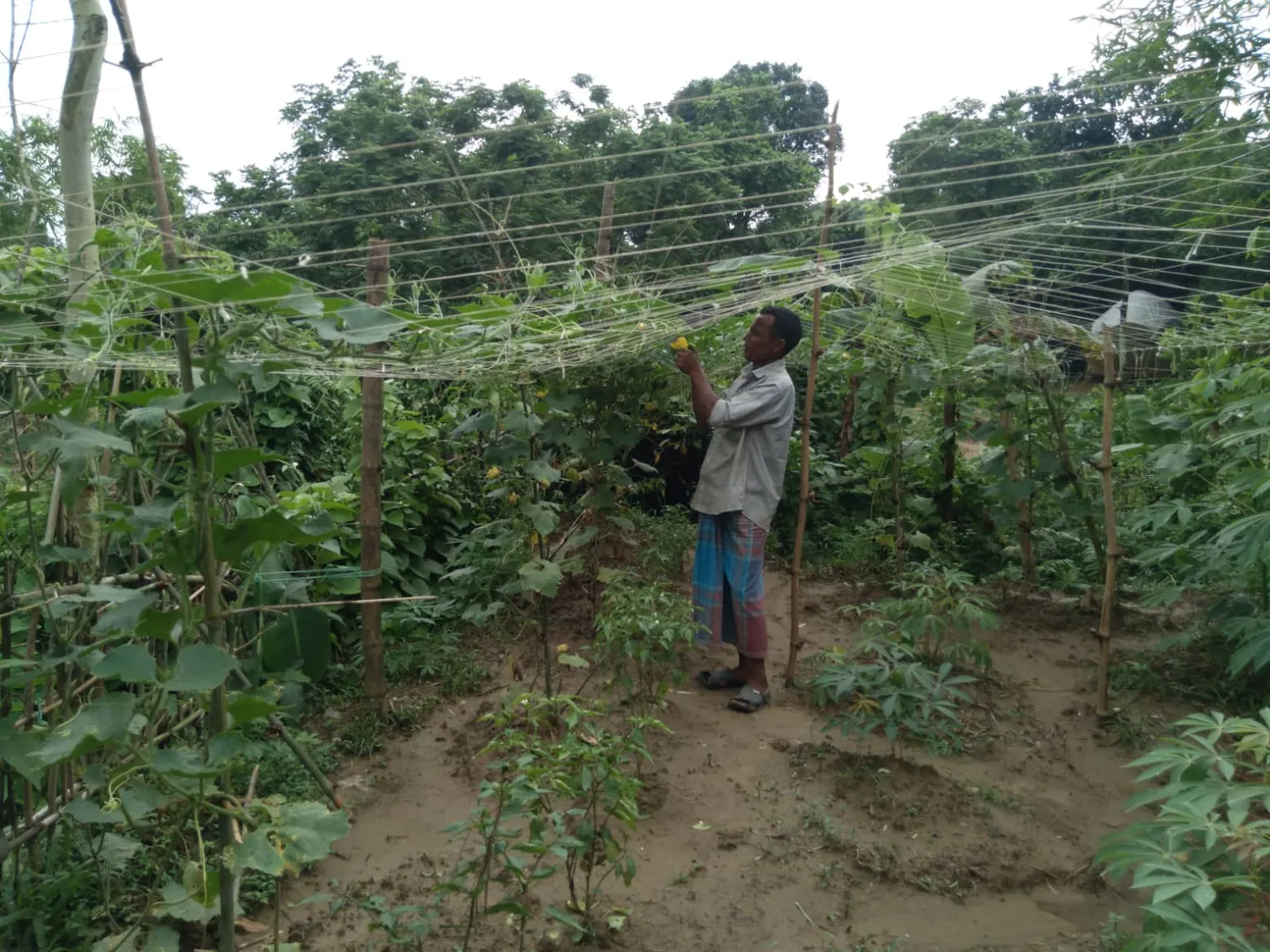
Nahajan produces vegetables throughout the year in his homestead lands which makes him able to meet family vegetable demands including nutrition. Presently has cultivates different vegetable that include: pumpkins, cockroaches, jute, dates, chilies, pickled leaves, eggplant and fruits. However, after meeting the family vegetable needs Nahajan sells the surplus in the market which earns him additional cash. Nahajan Hajong also produces and sells a variety of seasonal vegetables. His initiative is also inspiring the neighbors.
Translated by Silvanus Lamin

